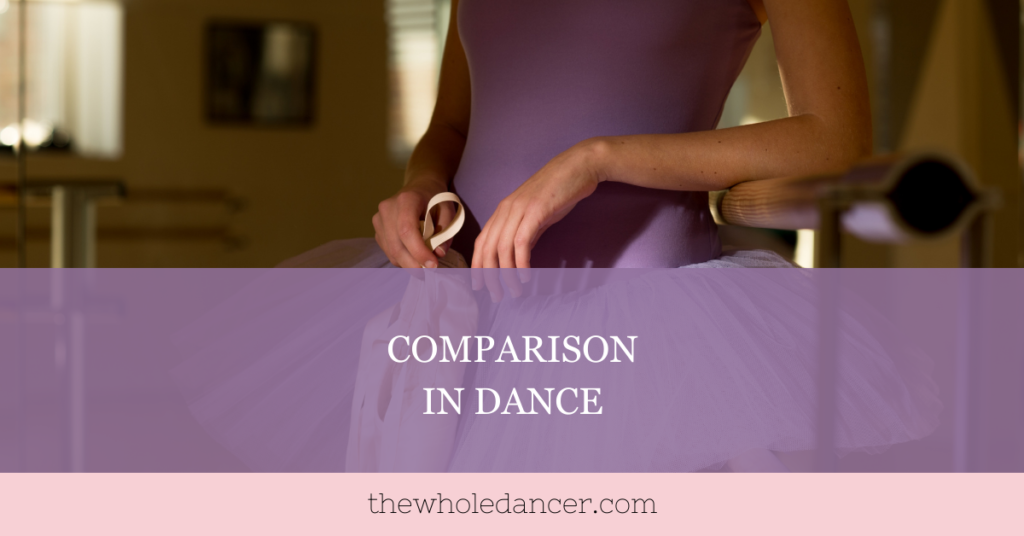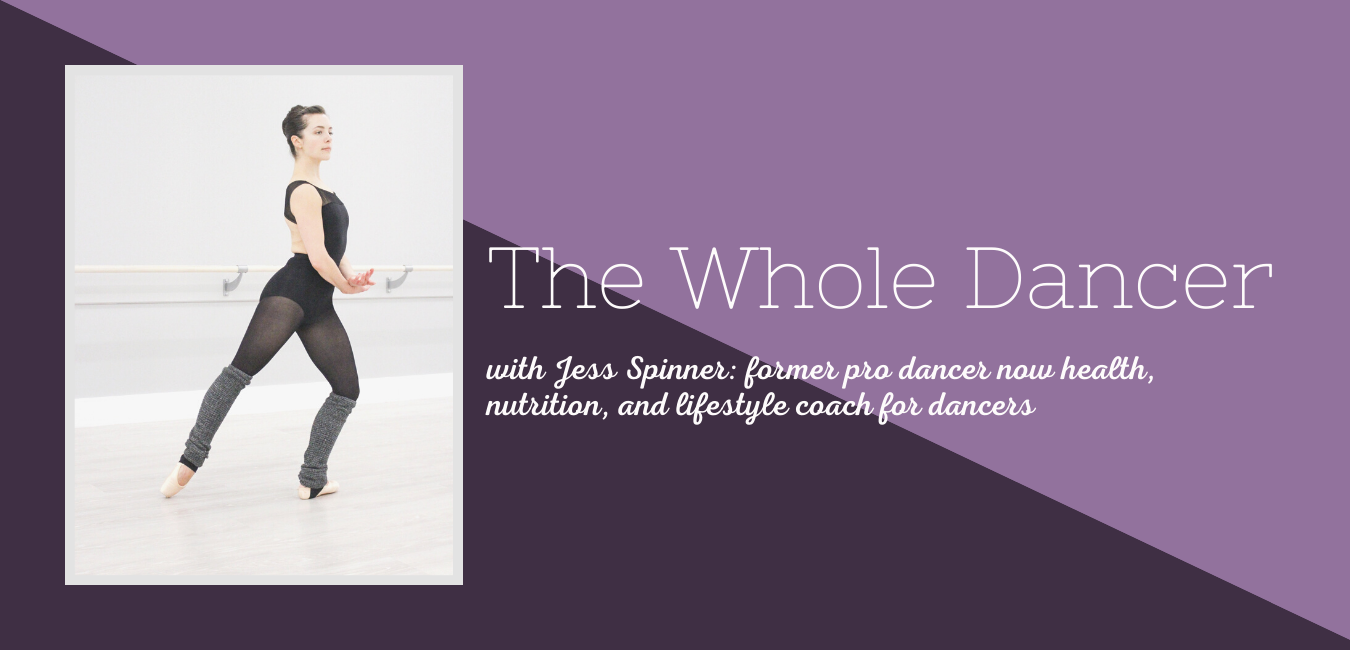Comparison will come up in dance. There’s research in the field of emotional psychology that shows how you as a human are impacted by comparison. The discoveries are startling. Comparison is basically a human condition. Everyone is doing it, all the time, and there’s no way to turn it off.
“Comparison is the crush of conformity from one side and competition from the other.” —Brené Brown
Here’s the good news: just because you can’t turn it off doesn’t mean you’re powerless against it. It is completely up to you how you respond to comparison. For dancers, there are a lot of instances when comparison can come up for you. Here are some examples and some tips for how to work through it.

Body comparison in class.
If you’re struggling with your relationship to food and body image, comparing to the bodies around you in class is going to be particularly challenging. There’s also an element of chicken vs. egg here. Did you start comparing your body first? Or, did your body struggles start fueling comparison?
Whichever came first, here are some things to focus on to work through body comparison in class:
- Bring the focus to what your body allows you to do.
- Remember that your judgments are based on opinions.
- Practice embodiment: close your eyes and come back into your body.
Technical ability or dance quality comparison.
It’s perfectly natural that you would compare your dancing to those around you. At times when dancers do this, it can turn into judgment. You try to lift yourself up by tearing others down (even if just in your head).
If you find you’re judging the dancers around you, bring the focus to each dancer’s individual beauty and strengths. When you practice viewing others in this way, it becomes easier to give yourself the same level of compassion, support, and admiration.
Remember, none of us has a crystal ball. Your opinion of your friends or peers doesn’t guarantee that they’ll get a job and you won’t. You have to stay open to the fact that artistic directors are all looking for something different. You may be exactly what a prospective director is looking for.
Comparison to what your friends are eating.
Food comparison is perhaps some of the most dangerous comparison, but it’s also incredibly common. It makes sense: if you regard another dancer’s body more “ideal” than yours, you’re likely to look at their food choices and wonder if you should follow suit.
From the outside, you’re not getting anyone’s full food picture. You don’t know what another dancer eats when they’re alone. You can’t usually tell if they’re deficient in vitamins or minerals or if they’re chronically underfueling.
You have to tune into yourself and commit to prioritizing your own health and well-being. It doesn’t matter how anyone else eats. Make a goal to figure out what works best for you.
Casting and comparison.
This one can be pretty simple. You might spend some time after a casting sheet goes up analyzing or overanalyzing the meaning of certain choices made by artistic staff. The reality is, some of casting has to do with things that are completely outside of your control, like height.
When you start to overanalyze, come back to gratitude that you’re getting an opportunity to dance. If you’re in the second or third cast, try to find joy in the process, but if you’re struggling, prioritize finding joy outside of the studio.
Rather than ruminating without any information, be proactive and ask for feedback from artistic staff. It’s much more productive to get real feedback than to assume a casting decision means more than it does.
Jobs, summer intensives, comparison in achievement.
When you go out for auditions, commit to showing up fully and authentically. Don’t try to conform, and don’t try to dance like the dancer next to you. Be yourself.
In college, when I went out to audition for companies with a couple of friends, I was really concerned. I assumed that every company would choose my friend Alice over me. She and I were around the same height and had similar body shapes and concerns, but Alice was always cast in lead roles. I was not.
What actually happened was that Alice got job offers and I got job offers but none were from the same company. You can’t predict what the people in front of the room are going to like or who they’re going to choose. Just be you.
Social media: Instagram and comparison.
You will compare yourself to what you see on social media. Everyone does this. Unfollow any accounts that you find routinely make you feel badly about yourself. Set limits around how often you use social media.
Take social media breaks and give yourself space from their influence. If you find you’re struggling to create that space for yourself, you may need to delete the app. Beyond that, try replacing the habit with something else. What if every time you’re tempted to grab your phone, you grab a notebook instead? You can then take those opportunities to reflect on what’s going well in your day or your life.
The truth is that comparison is going to happen. The bad news is that our hardwiring makes us default to comparison — it seems to happen to us rather than be our choice. The good news is that we get to choose how we’re going to let it affect us. If we don’t want this constant automatic ranking to negatively shape our lives, our relationships, and our future, we need to stay aware enough to know when it’s happening and what emotions it’s driving.
In any circumstance, when you find you’re comparing yourself to someone, try wishing them well. Think, as if you’re speaking to them, “I hope you dance well and enjoy what you’re doing.” Then, give yourself the same support.
Ready for massive shifts in your life and dancing? Let’s have a chat about your goals for your body, your relationship to food, and your dance career. Having support through the fluctuations of a summer dance schedule can make a huge difference in how you go into a new year of pre-professional or professional dancing. Want some strategy and support at no cost? Sign up for your free call here.
